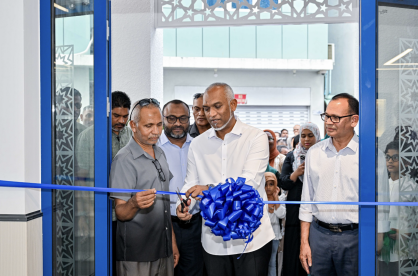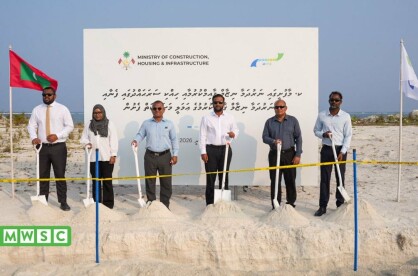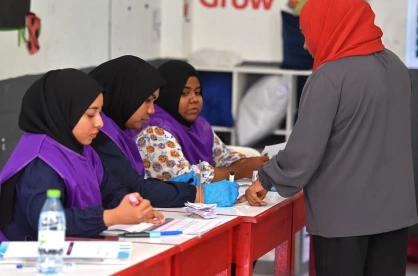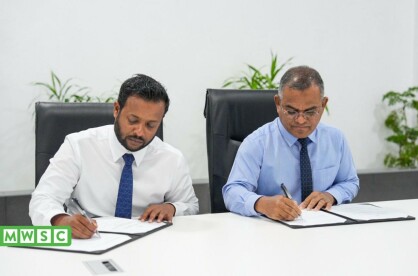COVID-19 stimulus and relief packages
Government relief packages have targeted large businesses. It needs to supplement grants with loans to support SMEs to ensure they survive.

MFR Images
Government relief packages have targeted large businesses. It needs to supplement grants with loans to support SMEs to ensure they survive.

MFR Images
On 25 May, President Ibrahim Mohamed Solih announced a new relief package to assist and stimulate businesses, during yet another COVID-19 lockdown. However, unlike many other countries, all assistance provided to businesses so far have been 'relief loans' rather than grants. Many critics have quesitoned the sustainability of such policies, and whether it will really assist businesses, especially Small and Medium Enterprises (SMEs).
Public sector support to firms can help address liquidity or solvency needs during the pandemic and ensure economies are well positioned to rebound once restrictions are eased. Even in the Maldives, to support businesses during the pandemic, the government has offered various financial assistance packages, including discounts on electricity and water bills, debt moratoriums, and most recently, a tax deferment for various businesses. However, the highest proportion of the assistance provided has been in the form of 'relief loans.'

According to data published by the Ministry of Finance on 27 May, a total of MVR3.4 billion (over USD200 million) has been spent on COVID-19 related expenditure by the government. Of this, over MVR1.7 billion (about USD111 million) was spent on Economic Relief Program targeting households and businesses, including about MVR400 million (25 percent) as income support and about MVR140 million (8 percent) as discounts on electricity and water bills. However, almost 70 percent or over MVR1 billion was provided as COVID-19 Recovery Loans to businesses. They were disbursed by the Bank of Maldives (BML) and the SME Development Finance Corporation Pvt Ltd (SDFC).
A large component of this scheme, over MVR700 million or 44 percent, disbursed through the BML, were received by about 400 large companies, while about 2,000 SMEs and freelancers received MVR360 million or 23 percent. This comes to an average of MVR2 million per large company, while for SMEs and freelancers the average was less than MVR200,000. Considering the 7,000 to 8,000 tax paying establishments registered to date, this indicates that relief loans were received by only 30 percent of SMEs while more than 50 percent of large businesses received assistance.
In addition, most of these large companies include resort operators, who were also accorded one-year deferrals for lease rents, the total of which amounted to MVR1 billion in 2020. The BML, together with the Ministry of Tourism and the Maldives Association of Tourism Industry (MATI), also provided short-term financing solutions of up to USD2 million to support the sector. Hence, over MVR3 billion in various types of financing and relief has been given to large businesses, in return for them not terminating local employees. However, almost half of the over 20,000 workers seeking income support are from the tourism sector, indicating that this policy has failed.
The report published on the ‘Impact of Covid-19 crisis in Maldives; Part 3: Micro, Small and Medium Enterprises’ (2020) by UNDP and Ministry of Economic Development (MED), revealed that over 46 percent of SMEs said financial assistance is their most critical need during the pandemic. Of these, the majority had requested for grants from the government, in addition to low-interest loans and assistance.
Likewise, a survey conducted by the Business Center Corporation (BCC) indicated many SMEs concerned over the existing facilities provided by the government, including cumbersome application processes. As a result of this and combined with the high repayment risk due to future uncertainties, more than 57 percent have not applied for these facilities. Many SMEs also felt that the support available for SMEs was "inadequate and somewhat 'unfair' compared to what large companies were getting." Hence, one of the key recommendations of the report was to establish a financing window which provides grants or zero-interest loans targeting SMEs.
Despite this, the second economic stimulus package announced by President Solih in May 2021 again included 'relief loans' through the BML under a MVR370 million facility, and through the SDFC of up to MVR1 million.
BML facilities, known as 'COVID-19 Economic Stimulus Loan,' is an unsecured facility, available to businesses financially affected by the pandemic to finance up to MVR10 million at an interest rate of 6 percent, repayable over four years. It was also announced that SMEs such as guesthouses, salons, gyms and restaurants would be eligible. However, just like the previous European Investment Bank’s (EIB)’s SME loan of EUR20 million in 2020, it is doubtful that the many SMEs in need will be able to access this assistance, as they are already in debt from previous loans and because it is also based on "first come first served basis" – with lack of transparency on who receives the loans, it is usually those with the 'right connections' who will secure these loans.
In the developed world, countries such as the UK provided GBP20 billion in grants and tax relief in 2020 for the leisure industry and SMEs, in addition to loans of over GBP330 billion. The EU in 2021 has a much a larger grant budget, with over EUR300 billion included in its EUR750 billion of the Next Generation EU (NGEU) programme. Even smaller countries such as Mauritius, the State Investment Corporation has raised MUR4 billion to make equity investments in troubled firms, including SMEs, rather than only giving loans.
The Maldivian government received over USD1.3 billion in assistance from a variety of sources – including USD320 million from multilateral donors and USD550 million from bilateral. Although a large proportion of this assistance is tied to projects, the government could have negotiated with donors to earmark part of these funds for human capital development, such as they did in Mauritius, where its Human Resource Development Council (HHRDC) mandated training and reskilling for over 9,000 unemployed, as part of the income support provided by the government.
In the case of Maldives, all these recovery loans have only led to more accumulation of debt, both in the private and public sectors, with few long-term investments being made. As of end-May 2021, private sector debt in the financial sector has increased by 8 percent to MVR31 billion. In terms of sector, the tourism sector (17 percent), construction (9 percent) and real estate (2 percent) registered the highest growth in debt accumulation, while other sectors including the fisheries and wholesale sectors, registered negative growth. More worrying perhaps is what is being seen in the personal debt sector, at over 10 percent of commercial banks' loan portfolio. This indicates that individuals and small businesses are taking unsecured credit such as credit card debt and other forms of high interest rate and short-term loans.
In addition to this, government debt has also increased. As at end May, government credit (net) in the domestic financial sector has increased by over 30 percent annually, to reach MVR41 billion. Of this MVR2.7 billion is monetized through the central bank. Total public sector debt (including publicly guaranteed debt) had reached MVR86 billion (130 percent of GDP) at the end of March 2021.
A key, longer term policy noted in the UNDP report was the establishment of 'an integrated financing strategy for enabling recovery and transformation to sustainable development.' However, no such longer-term strategies and plans for diversification were formulated when funds were received from various donors for stimulus and economic recovery programs – the focus was only on short-term relief. There is also a high risk of non-performance on these recovery loans, which may require the government having to step-in to avoid a banking crisis.
As such, as recommended by the International Monetary Fund (IMF), in their special series on public sector support to firms during COVID-19, additional measures may be needed to support the most vulnerable sectors, such as SMEs, including outright grants and equity injections. In addition, the IMF also has advised that these support to be timely, targeted, and temporary.
It is time for the government to set a clear timeline of when the financial support will be phased out, so that businesses can start planning and ensure business continuity in the longer run.



